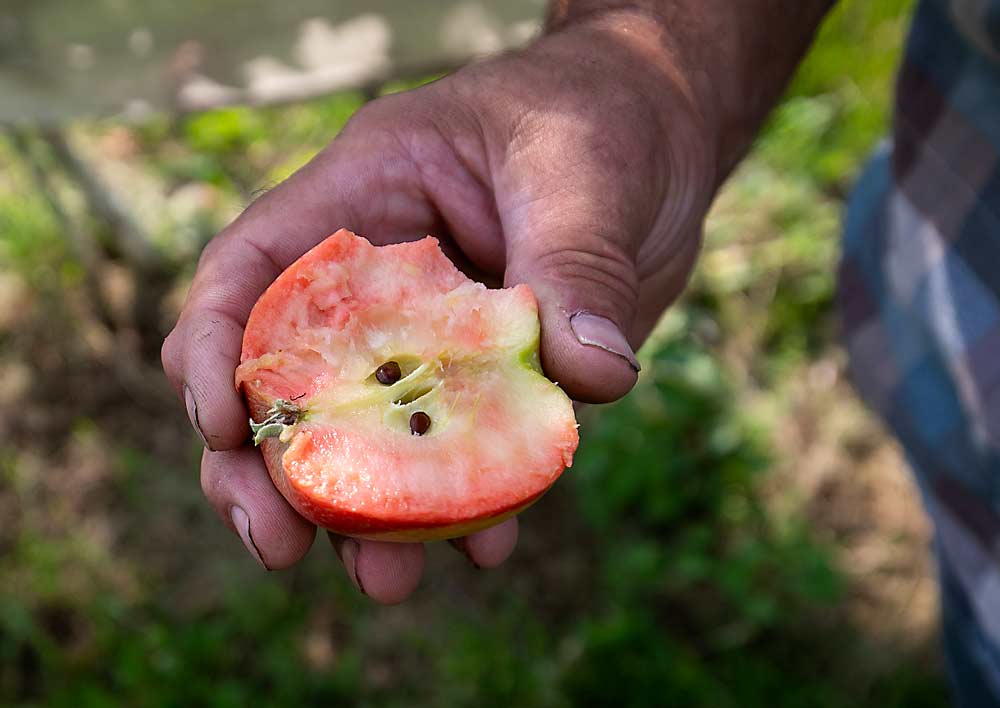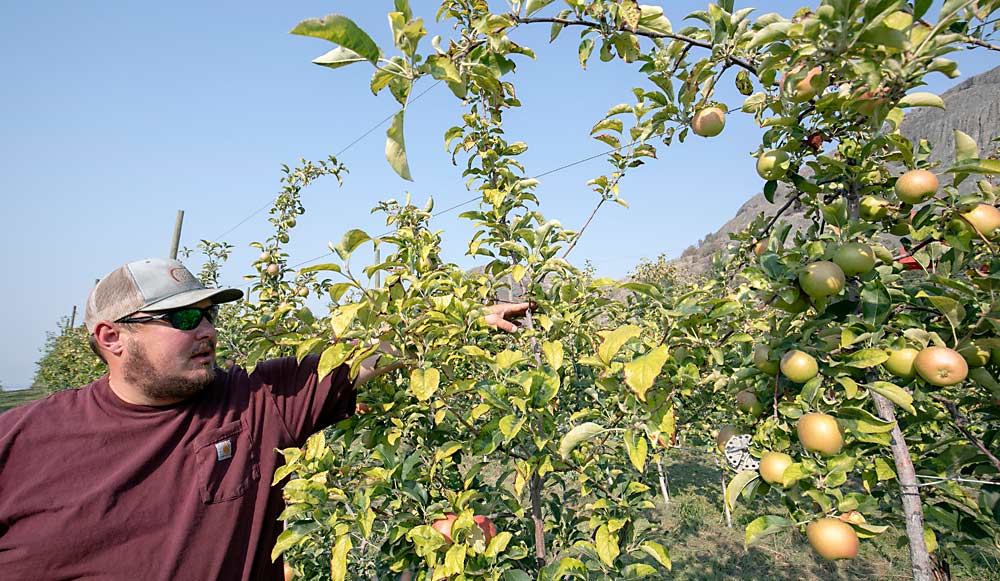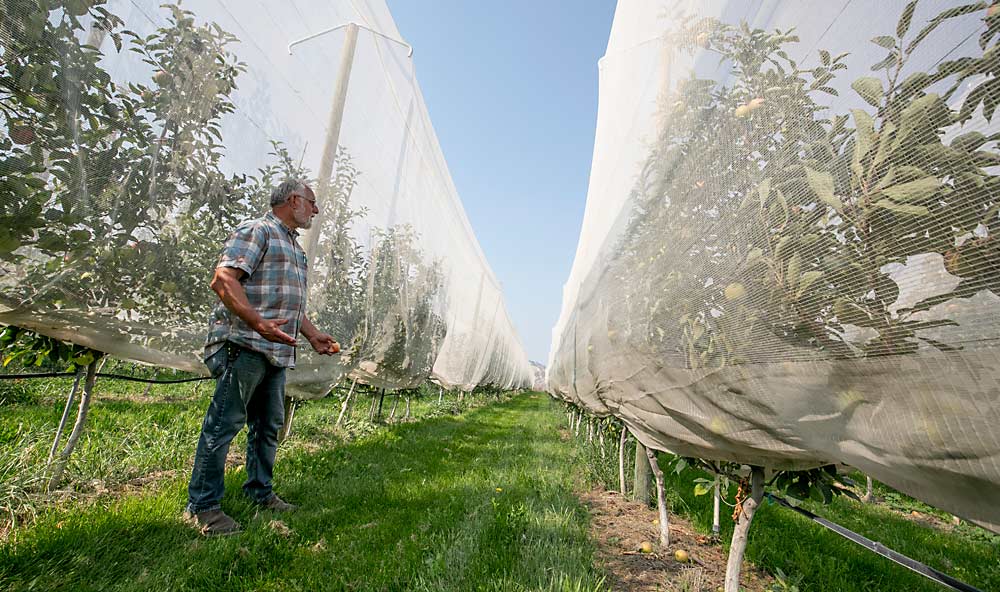—story by Ross Courtney
—photos by TJ Mullinax

Picking a winning niche apple variety requires a lot of homework, relationships with the right marketing desks and a little luck.
Growers with the red-fleshed Lucy Rose still don’t know if it will pay off.
“I’ve always been strong on club varieties, thinking they’re always going to return higher because they’re managed,” said Rod Wedel, a grower who has only three varieties at his Loomis, Washington, orchard. A large chunk of his 45 acres is planted with Chelan Fresh club varieties Lucy Rose and SugarBee.
But that’s far from a sure bet. Managed varieties with limited acreage can fetch high returns for growers or rapidly lose favor in the marketplace. Elsewhere in North Central Washington, growers have removed once-hot Pazazz and Smitten apples when returns waned. Now, Pazazz returns may be inching back up, said Jim Divis, general manager of Honeybear Growers, the apple’s backer.
Wedel and fellow Okanogan County small grower Pat Colbert bet on the Lucy Rose and SugarBee, both Honeycrisp crosses.
If Wedel expanded on anything right now it would be SugarBee, which has a more-proven record of consistent returns for him.
Likewise, SugarBee is helping keep Colbert afloat in the otherwise low-return apple season of 2023-24. SugarBee returns have been at least $200 per bin higher than unmanaged varieties, in his experience.
“If I had just common core varieties, I would be losing big money,” Colbert said.
Colbert got lucky on SugarBee. He was among the first to plant the variety in 2014 when he came in second in a lottery for 5,000 trees available through Chelan Fruit, at the time a cooperative partnered with Gebbers Farms under the Chelan Fresh marketing banner. The winner had declined.
“The real question is what’s next,” he said. The SugarBee patent expires in 2032.
He planted Lucy Rose in 2015, hoping to answer that question.
But in this case, the risk is compounded because the variety can be hard to grow.
Coaxing the pink into the flesh of the apple requires cool nights, so higher elevations, north-facing slopes and higher latitudes work best. Meanwhile, the cultivar is sensitive to fire blight and requires a vigorous rootstock, growers said. It also takes three or four picks.

Lucy series
Breeder and grower Bill Howell selected Lucy Rose — a cross between Honeycrisp and Airlie Red Flesh — for propagation in 2010. Its patent will expire in 2035.
Unlike Washington State University’s WA 38, marketed as Cosmic Crisp, Howell did not hold trials statewide. Companies that expressed interest got a few trial trees. Chelan Fresh liked what they saw and bought in, Howell said.
The volume ramp-up has been modest. Limited stores sell the apples, and they usually run out by early February, he said. The United States has about 343,000 Lucy Rose trees in the ground, according to Yakima’s Proprietary Variety Management, or PVM, which steers the commercialization of the Lucy series of red-fleshed apples. In contrast, Washington state alone has 22 million WA 38 trees.
The Lucy series includes red-skinned Lucy Rose (TC2), Lucy Glo (TC3) with yellow skin and Lucy Gem (TC7) with yellow-green skin.
There are a few small plantings of Lucy apples in Europe, said Kevin Brandt, vice president of PVM.
Howell is still experimenting with more Lucy apples.
Meanwhile, Chelan Fresh and Gebbers have developed horticultural and storage protocols for the tough-to-grow apples.

“Lucy apples aren’t necessarily grower-friendly,” Howell said.
Howell, who farms in Prosser, Washington, understands the risks of niche varieties.
He claims to be the first Washington grower to plant Honeycrisp back when the open variety was unproven. He started with 4 acres, after hearing good things from Minnesota, where it was bred.
He saw it at Washington State University’s Roza research orchard during a tour and took a chance.
A member of the Snokist Growers cooperative at the time, he contacted a grocery distributor from Minnesota and arranged for shipments. Those conversations still happen with new varieties today, though growers would more likely handle them through a packing house or marketing desk than personally, he said.
“It takes a little stroke of luck,” he said. •







Leave A Comment